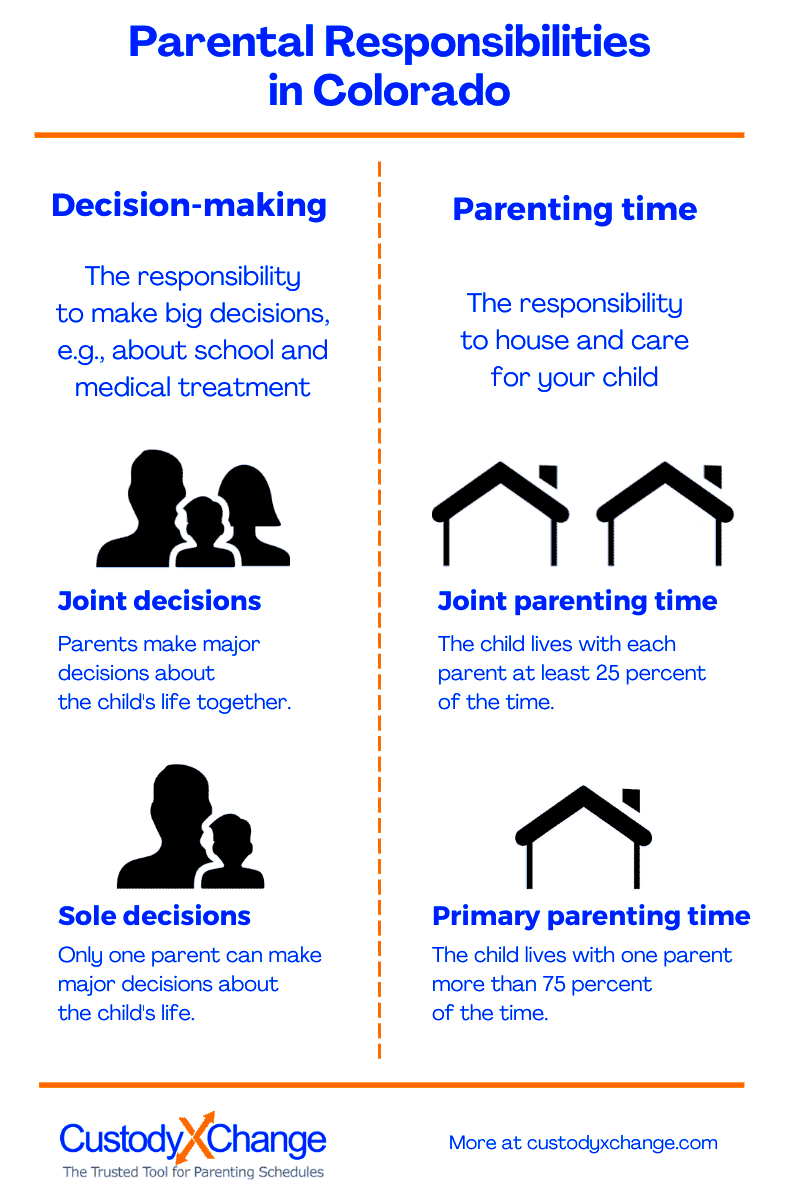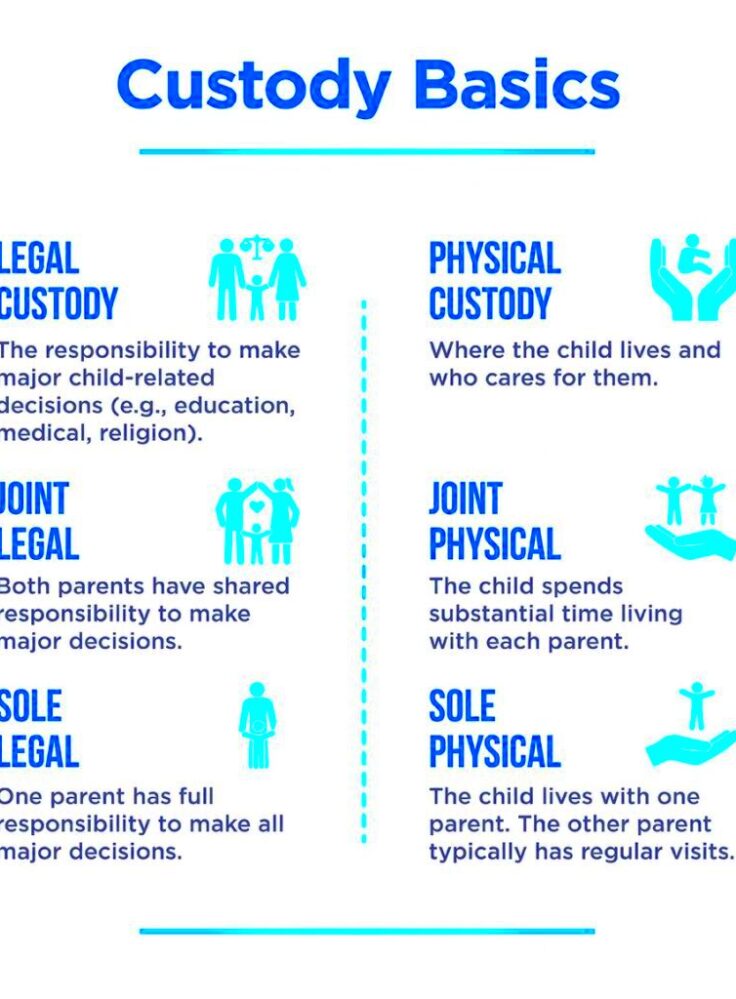Compliance with Child Custody Laws in Colorado
Child custody laws in Colorado are designed to prioritize the best interests of children. When parents separate or divorce, determining custody arrangements can be challenging. In Colorado, custody laws encompass both legal custody and physical custody. Legal custody involves decision-making authority regarding a child’s upbringing, while physical custody pertains to where the child lives. Understanding these laws is crucial for parents as they navigate this emotional process.
Types of Child Custody in Colorado

In Colorado, there are two main types of child custody: legal custody and physical custody. Here’s a breakdown:
- Legal Custody: This refers to the right to make important decisions about a child’s life, such as education, health care, and religion. Parents can share legal custody (joint legal custody) or one parent can have sole legal custody.
- Physical Custody: This determines where the child lives. Similar to legal custody, physical custody can be joint or sole. In joint physical custody, the child spends significant time with both parents, while sole physical custody means the child primarily lives with one parent.
Colorado also recognizes the importance of parenting time, which refers to the time a child spends with each parent. A well-structured parenting plan helps ensure a balanced and stable environment for the child.
Factors Influencing Custody Decisions

When determining custody arrangements, Colorado courts consider several factors to ensure that the child’s best interests are met. These factors include:
- Parental Cooperation: Courts look at how well parents can communicate and cooperate regarding the child’s upbringing.
- Child’s Needs: The child’s emotional and physical needs are paramount. Courts consider their age, health, and educational requirements.
- Parental Stability: A stable home environment is essential. Courts evaluate each parent’s ability to provide a safe and stable living situation.
- Relationship with Parents: The child’s relationship with each parent plays a significant role in custody decisions. Courts assess how involved each parent has been in the child’s life.
- Any History of Abuse: If there are allegations or evidence of abuse, this can heavily influence custody decisions, as the child’s safety is the priority.
Understanding these factors can help parents prepare for custody discussions and demonstrate their commitment to their child’s welfare.
The Custody Agreement Process

The custody agreement process in Colorado is crucial for establishing a clear understanding between parents regarding child custody and parenting time. This agreement outlines how parents will share responsibilities and time with their children after separation or divorce. While it can be a challenging process, having a well-defined custody agreement can help minimize conflicts and ensure the child’s needs are met.
Here’s how the custody agreement process typically works:
- Initial Discussions: Parents should have open conversations about their expectations and preferences regarding custody and parenting time.
- Parenting Plan Creation: It’s helpful to draft a parenting plan that details how decisions will be made, visitation schedules, and holidays. This plan should reflect the best interests of the child.
- Mediation: If parents cannot agree, mediation may be required. A neutral mediator can facilitate discussions and help parents reach a mutually beneficial agreement.
- Filing with the Court: Once an agreement is reached, it must be filed with the court for approval. The court will review the agreement to ensure it serves the child’s best interests.
- Final Court Hearing: A judge may hold a final hearing to finalize the custody order. If everything is in order, the judge will sign the custody agreement.
Modifying a Child Custody Order

Life is constantly changing, and sometimes a child custody order may need to be modified. In Colorado, parents can seek to change a custody order if they can demonstrate that a modification is necessary for the child’s best interests. Here’s how the process generally works:
- Grounds for Modification: Valid reasons for modification can include significant changes in circumstances, such as a parent’s relocation, changes in job status, or changes in the child’s needs.
- Filing a Motion: The parent seeking modification must file a motion with the court. This document should clearly outline the requested changes and the reasons behind them.
- Notifying the Other Parent: The other parent must be notified of the motion. They have the right to respond to the proposed changes.
- Court Hearing: A hearing will be scheduled where both parents can present their cases. The court will consider the evidence and arguments before making a decision.
- Final Decision: The judge will issue a ruling based on what they believe is in the child’s best interests. If approved, a new custody order will be created.
Enforcement of Custody Orders
Once a child custody order is in place, it’s vital that both parents adhere to it. However, situations can arise where one parent does not comply with the order. In such cases, enforcement of custody orders becomes necessary. Here’s what you need to know about enforcing custody orders in Colorado:
- Document Violations: If a parent fails to follow the custody order, the other parent should document the violations. Keep records of missed visitation, lack of communication, or other breaches of the order.
- Communication: Before taking legal action, it’s often best to communicate directly with the other parent. Sometimes, misunderstandings can be resolved through open dialogue.
- Filing a Motion for Enforcement: If issues persist, the affected parent can file a motion with the court to enforce the custody order. This motion should detail the violations and any attempts to resolve the matter amicably.
- Court Hearing: A court hearing will be scheduled to address the enforcement request. Both parents will have an opportunity to present their sides.
- Possible Outcomes: If the court finds that the custody order has been violated, they may enforce the order, modify the custody arrangement, or impose penalties on the non-compliant parent.
Enforcement ensures that the custody arrangement works as intended and keeps the child’s well-being as the top priority.
Resources for Parents Navigating Custody Issues
Navigating child custody issues can be overwhelming for parents, but there are numerous resources available to help them through this challenging time. Understanding your options and having access to support can make a significant difference in how custody matters are handled. Here’s a list of valuable resources for parents in Colorado:
- Colorado Judicial Branch: The official website provides essential information about custody laws, court procedures, and parenting plans.
- Family Law Attorneys: Consulting with an experienced family law attorney can help parents understand their rights and responsibilities. Attorneys can provide personalized advice and representation in court.
- Mediation Services: Mediators can assist parents in reaching amicable agreements regarding custody and visitation. The Colorado Office of Dispute Resolution offers a list of mediators.
- Parenting Classes: Many organizations offer parenting classes that focus on co-parenting strategies and effective communication, which can be beneficial for parents navigating custody issues.
- Support Groups: Joining a support group can provide emotional support and resources. Organizations like Parents Apart offer forums for parents to share experiences and advice.
Having access to these resources can empower parents to make informed decisions and foster a positive co-parenting relationship that prioritizes the child’s best interests.
FAQs about Child Custody Laws in Colorado
Child custody laws can be confusing, and parents often have many questions. Here are some frequently asked questions (FAQs) about child custody laws in Colorado:
- What is the difference between legal and physical custody?
- Legal custody refers to the right to make important decisions for your child, while physical custody involves where the child lives.
- How does the court determine custody?
- The court considers various factors, including the child’s needs, parental stability, and the child’s relationship with each parent, all aimed at ensuring the child’s best interests.
- Can custody agreements be changed?
- Yes, custody agreements can be modified if there are significant changes in circumstances that affect the child’s well-being.
- What should I do if the other parent does not follow the custody order?
- Document the violations, communicate with the other parent, and if necessary, file a motion with the court for enforcement.
- Is mediation mandatory in Colorado custody cases?
- While mediation is not always mandatory, many courts encourage it as a way to resolve disputes amicably.
These FAQs can help clarify some common concerns and provide parents with a better understanding of the custody process in Colorado.
Conclusion on Compliance with Child Custody Laws
Compliance with child custody laws in Colorado is essential for ensuring the best interests of children. Parents play a crucial role in maintaining a healthy co-parenting relationship and following custody agreements. By understanding the laws, resources, and processes involved, parents can navigate custody issues more effectively and work towards a positive outcome for their children.
It’s important to stay informed and seek support when needed. Whether through legal representation, mediation, or community resources, having the right tools can make a significant difference in how custody matters are resolved. Ultimately, the goal is to provide children with a loving and stable environment, regardless of the circumstances surrounding their parents’ relationship.


